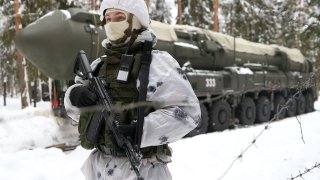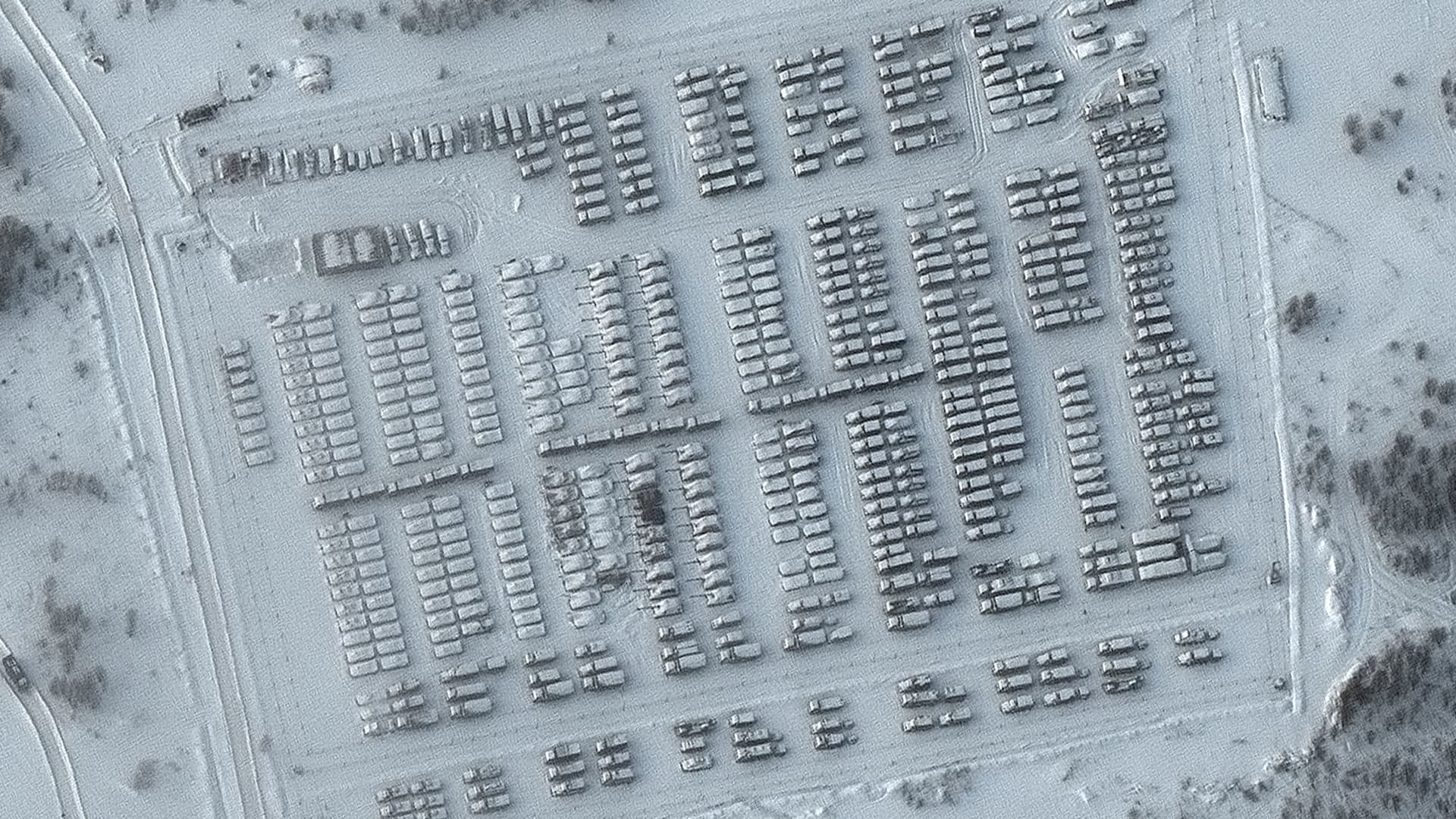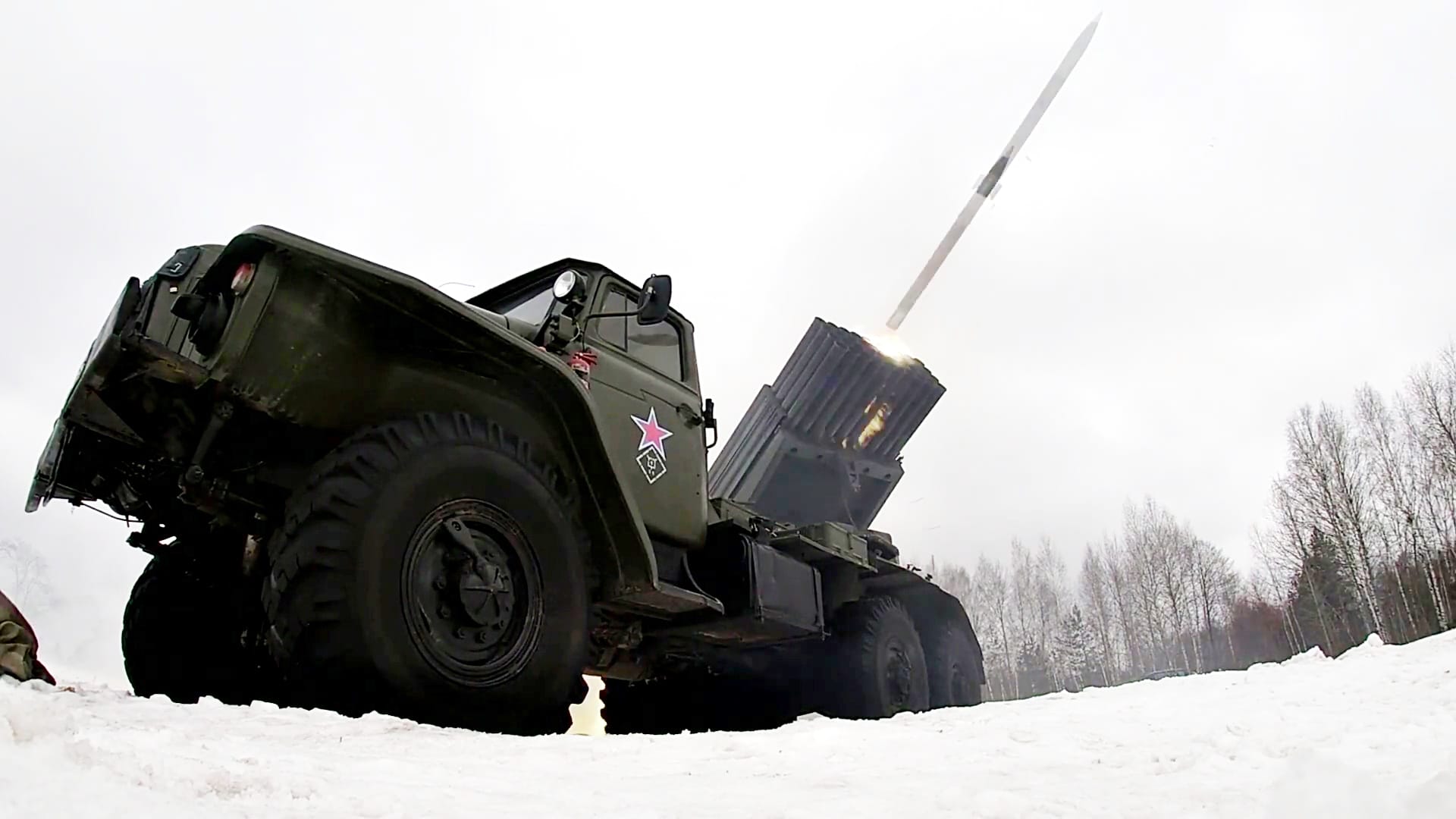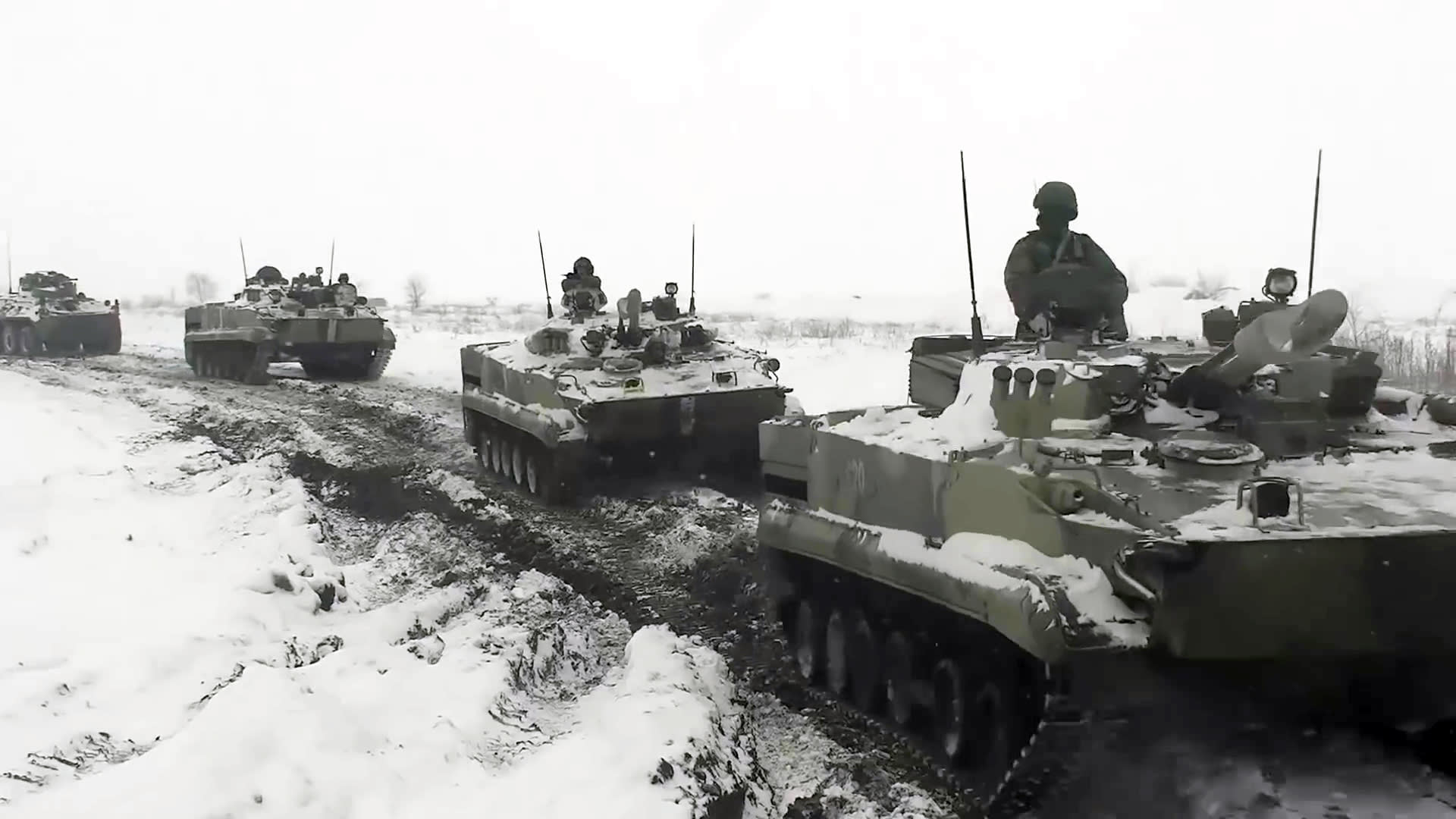
- Russia is willing to risk “real financial harm” and all-out war to achieve its political objectives over Ukraine, defense analysts have said.
- Moscow has denied that it plans to invade neighboring Ukraine, a former part of the Soviet Union, despite having assembled around 100,000 troops at the border.
- On Sunday, Bob Menendez, chair of the U.S. Senate Committee on Foreign Relations, told CNN that lawmakers were devising the “mother of all sanctions” against Russia.
Russia is willing to risk "real financial harm" and all-out war to achieve its political objectives in Ukraine, defense analysts have said.
Moscow has denied that it plans to invade neighboring Ukraine, a former part of the Soviet Union, despite having assembled around 100,000 troops at the border.
Russia is demanding that Ukraine never be permitted to become a member of the NATO military alliance and has said it wants the organization to roll back its presence in Eastern Europe.
Get South Florida local news, weather forecasts and entertainment stories to your inbox. Sign up for NBC South Florida newsletters.
Last week, the U.S. delivered a response to Moscow's demands that repeated previous refusals to concede. Diplomatic talks are expected to be held between the two countries at a U.N. Security Council meeting Monday.
The British government claimed earlier this month that it had evidence the Kremlin was seeking to install a pro-Russian leader Kyiv. In 2014, Russia invaded and annexed Crimea, a Black Sea peninsula in the south of Ukraine with an ethnic Russian majority.
Money Report
A spokesperson for the Russian government was not immediately available to comment when contacted by CNBC.
More steps before an invasion
Samuel Cranny-Evans, a research analyst at defense and security think tank the Royal United Services Institute, said it was likely there was still a way to go before Russia invades Ukraine.
"This isn't an invasion force yet," he told CNBC in a phone call. "Russia has very deliberately built [this situation] in such a way that we will know when it is an invasion force."
He added that what we have seen so far was "just the first step," and now that things like air defense assets, convoys of fuel and ammunition — and the personnel to man all of the equipment — were being moved to the border, Russia was taking its second step.

"There are, I would argue, quite a few steps to go through before we actually get to Russian troops moving onto Ukrainian soil," he said. "We might see standoff tactics like cruise missile test launches and cyberwarfare attacks, a bit of unrest and assassination in Ukraine, perhaps."
Cranny-Evans speculated that the first act of war would most likely be long-range missile strikes that targeted key military and industrial infrastructure in Ukraine.
"It's all about showing that if you continue down this road of not doing what we want, we have the ability to target your values," he told CNBC. "It isn't about Russian men killing Ukrainian men and women, it's about targeting the Ukrainian way of life."
Mathieu Boulegue, a research fellow at Chatham House's Russia and Eurasia program, agreed, telling reporters during the think tank's press briefing on Friday that the Russians did not yet appear to be ready to invade.

"We have now one of the largest concentrations of force in Europe since World War II with a force that looks like an invasion force," he said. "[But] we're still missing some elements in terms of military logistics to make it fully able and capable of sustaining warfighting operations at the technical operational level."
However, he said he suspected that Russia was willing to go to extreme lengths to achieve its political goals.
"You don't send close to 100,000 troops and as many people in reserves to prove a point — Russia has raised the stakes so high for me at this stage that it seems improbable it will just simply back down unless it gets something in return," he said.
Meanwhile, Cranny-Evans told CNBC that if these steps continued to unfold, it was worrying for the long-term outlook.
"According to Russian theory, they would actually only invade when they were pretty sure that the Ukrainians were already beaten," he said. "So they could, in theory, be beaten before Russian tanks even move across the border."

Some NATO members have signaled their support for Ukraine as troops have continued to be amassed at the country's border with Russia.
Speaking in Parliament last week, U.K. Prime Minister Boris Johnson warned that "many Russian mothers' sons will not be coming home" if Russia moved to invade Ukraine.
Meanwhile, Britain's foreign secretary, Liz Truss, has said the U.K. will introduce legislation this week to allow it to hit Russian banks, oligarchs and energy companies with economic sanctions.
On Sunday, Bob Menendez, chair of the U.S. Senate Committee on Foreign Relations, told CNN that the committee was devising the "mother of all sanctions" against Russia that would be "crippling to their economy" as a method of defending Ukraine.
German ministers have also said that Russia will face "massive" economic consequences if it takes any aggressive action against Ukraine.
Risking 'real financial harm'
"Real financial harm could be inflicted on Russia if the right sanctions and the right enforcement were put into place," Cranny-Evans said.
Even without sanctions, the entire operation is already likely to have been costly for Russia — and those costs will only continue to rise if its troops invade.
"Large-scale military action obviously comes with significant costs in terms of fuel consumption, ammunition, losses and replacement losses," Henry Boyd, research fellow for defense and military analysis at think tank the International Institute for Strategic Studies, told CNBC in a phone call. "The baseline cost of the [current] deployment is not a free action, but it's a relatively sustainable action — you're not having to pay an awful lot more in terms of your budget to achieve what you're trying to do."
But he said the military action would already have had "knock-on consequences" domestically, with a large amount of civilian transportation being diverted to the military over the last few months.
"You've also already seen the effects that rumors of military action and likely economic sanctions have had on the stock market," he added. "So I think you will already have seen, indirectly, some level of significant economic cost for the action undertaken so far."
The finance and resources used in some recent military campaigns — such as the Western-led air campaign in Libya — may "pale in comparison" to what Russia would need to expend in a significant ground invasion, according to Boyd.
"But there's a pessimistic view that however costly and however much risk Russia may run in terms of short-term economic pain, it may still be seen as worth it if it's the only way to preserve what, in their mind, is the essential political situation in Russia's near abroad," he warned.
"If they need to go through war — whatever the scale and the size — to obtain their political strategic goals, they will do it," Chatham House's Boulegue agreed. "If they can avoid it, of course they will, because nobody in their right mind in the Kremlin would want more sanctions and to be ostracized even more."
War would be "costly and long" for Russia, he added, and potential sanctions and economic costs could carry additional political costs by sparking popular uprisings against the Kremlin.
"They would sign [Putin's] death in a way," Boulegue said.
Andrew Wood, associate fellow at Chatham House's Russia and Eurasia Program and a former British ambassador to Russia, added that Putin was "motivated by a fear of popular revolutions," such as the unrest seen recently in Belarus.






